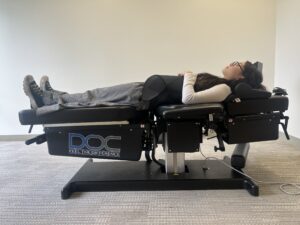We’ve heard good questions about wearing masks in public and want to share some information so you and your family can stay safe.
Masks are an additional precaution, not a replacement for social distancing and hand washing.
The safest way to avoid infection and slow the spread of the COVID-19 virus is social distancing or simply to stay home as much as possible. If you must be in public, maintain a 6-foot distance from other people. It’s still important to wash your hands with soap and water.
Where Can I Get Masks?
A patient of mine asked me, “where can I get masks?”
Here is my response: At this point, everything is sold out. I ordered masks prophylactically 3 months ago and they still haven’t arrived
Masks are only one form of protection. And yes your face might just get sweaty.
If you have a cough, it’s important to wear a mask so as not to transmit droplets from your cough on anyone else. Otherwise keep tissues on hand, cough into the tissue and throw away, wash hands after.
Remember, the virus is not floating around in the air to be inhaled in – thank goodness. They are heavier droplets that when sneezed or coughed or vomited out, can drop up to two meters away. Usually it’s picked up by hands and then we unknowingly touch our eyes, nose and mouth or pick at https://junglefitnessoc.com/accutane-for-sale/ our skin.
Washing your hands with soap and water will dissolve the fatty covering of the virus – the virus breaks down after. Remember, the virus is not itself living. It uses its outside fatty covering to blend in with the fatty covering of our human cells to introduce its own DNA into our DNA, the virus is basically a freeloader that comes with nothing and uses our cell’s machinery, resources, and energy to thrive and make other freeloading clones of itself to hijack our other hardworking cells. If we breakdown the fatty coverings with simple soap, those little suckers are hiding under, they can’t “survive” naked and become inactive.
Basically the masks are for health professionals working in a health care setting. Sometimes they are basic, but in other cases, they are N95 when worn in the context that a patient must be intubated or extubated and there’s a chance the virus will become aerosol (like the spray from our hairspray) and can be inhaled in. You and I will most likely never encounter that.
If it makes you feel better, you can actually sew masks out of spare fabric to be washed and reused. But really, just stay home, wash hands often, and disinfect commonly touched surfaces.
More resources you’ll find useful:
You Can Make Your Own
You can make your own mask at home that is suitable for wearing outside. It should have multiple layers of fabric and allow you to breathe easily. Don’t use cloth masks with children younger than 2 or anyone who has trouble breathing or is unable to remove the mask without assistance.
Wear A Mask To Protect Others
Masks are most helpful in keeping sick people from infecting others. Because there’s some risk that people who are infected with the virus don’t know they have it, the Centers for Disease Control and Prevention (CDC) recommends everyone uses a cloth face mask if they need to go out in public. Masks may also help prevent people from touching their faces, which should be avoided with unwashed hands. Learn more about using masks effectively.
Fight Against COVID-19 At Home
Here is a great opportunity for you to lend a helping hand. Have you ever taken a family studies course? Do you know how to use a sewing machine? Maybe you know someone in your family who does know how to work around a sewing machine.
Please visit www.stitch4corona.ca. They will supply all the materials. They just need your helping hands. Volunteers such as yourself are needed to stitch masks for our local hospitals.
Personal Protective Equipment is very scarce. Our frontline health care workers are at risk – without them, no one will be able to care for us.
The Front Line Workers thank you in advance for leaving masks for the health care workers who need them to provide patient care safely.
Thank you for all you do to protect yourself and others. To get to the root cause of pain and discomfort, schedule an initial consultation, including a comprehensive evaluation and first treatment.



